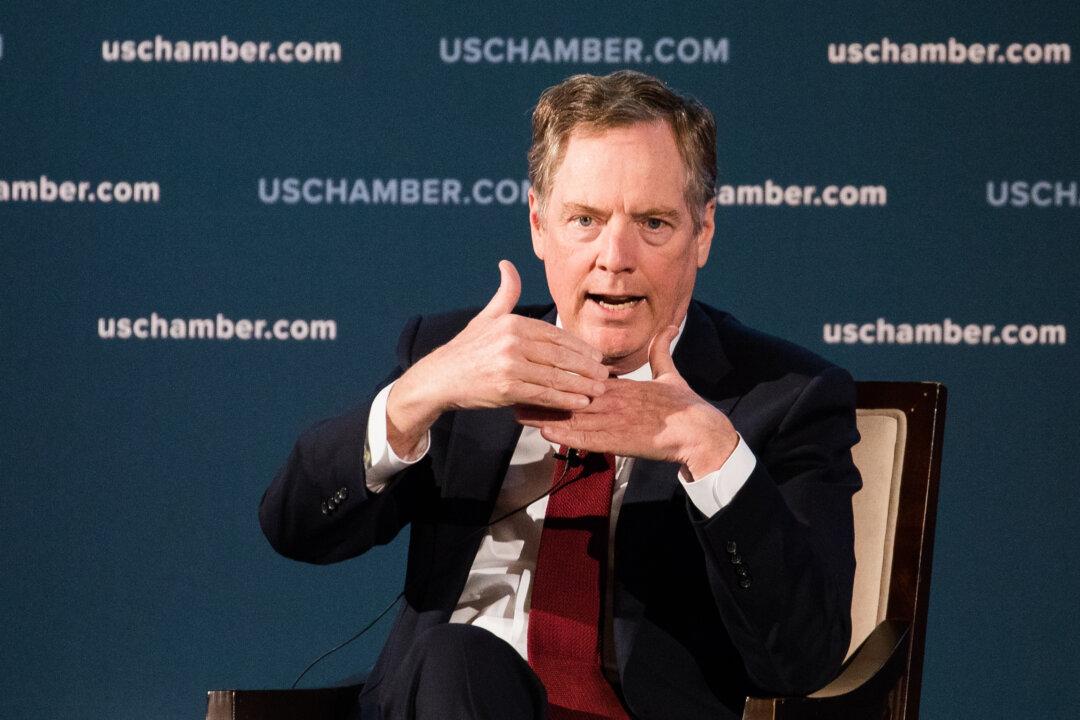WASHINGTON—Speaking at the U.S. Chamber of Commerce ahead of his participation in the trade delegation to China, U.S. Trade Representative Robert Lighthizer said resolving the trade dispute with the Chinese communist regime would be a very challenging task.
“I am always hoping, but not always hopeful. So it is a big, big challenge,” he said on May 1 about the chances of reaching a deal during the meetings in China, starting May 3.





